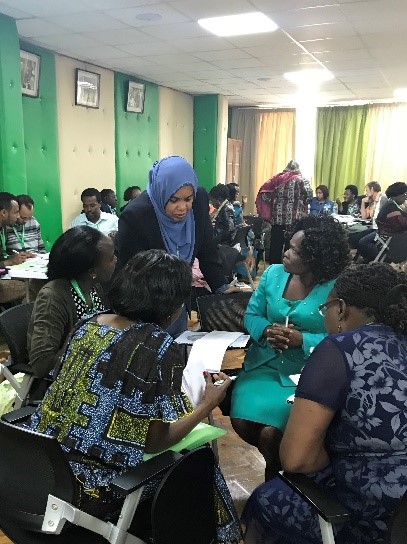A post from the Stillbirth Advocacy Working Group stillbirths series by Dr. Tedbabe Degefie Hailegebriel
Every Newborn Action Plan 2014, called for “Counting Every Newborn” by investing in birth and death registration coverage and quality, promoting recording of every birth, live or stillbirth, and recording stillbirths and neonatal deaths and institutionalizing perinatal death reviews and taking action to address avoidable factors identified through these reviews.
UNICEF and WHO together with Save the Children and other Maternal and Perinatal Death Surveillance and Response (MPDSR) Technical Working Group partners have developed a facilitator guide coupled with PowerPoint presentations and other resources that can be used for skill building of health facility teams. This resource is intended to be used in sync with other MPDSR initiatives in country and linked to activities aimed at improving quality of care for mothers and newborns.
The guide was pretested in Njombe Province in August 2018. The process identified that health workers needs skills and conducting reviews; materials were easy to follow, but need to be in Swahili language; although there exists data from DHIS2; analysis, interpretation and use to inform planning was lacking; familiarity and understanding of ICDPM was limited.
The guide focuses on clarifying common myths and misconceptions; defining key terminologies; aims and objectives of perinatal mortality reviews; audit cycle; classification of perinatal death using ICDPM, setting up facility processes or integrating with maternal review and surveillance for effective reviews and strengthening linkages with quality improvement efforts. Multiple case studies and tools are used to clarify concepts and allow practicing calculation of important perinatal indicators.
Each neonatal death and stillbirth is an immense tragedy, but if the lessons are learnt and systemic failures are addressed, these can save lives and improve quality of care. Conducting perinatal death reviews in a non-judgmental, non-punitive and culturally sensitive manner is important to ensure confidence of health providers to engage in a meaningful way.
Countries have started using the facilitator guide to plan and conduct training to health workers. In this line Sierra Leone, Ghana and Namibia will be using it in the coming few months.
The facilitator guide can be accessed here, and for further information contact Dr. Tedbabe Degefie Hailegebriel at thailegebriel@unicef.org.
This post from a member of the Stillbirth Advocacy Working Group (SAWG) reflects the perspective of the author alone; it does not represent the views of the SAWG.
The Stillbirth Advocacy Working Group was founded by the Partnership for Maternal, Newborn and Child Health, and is co-chaired by the International Stillbirth Alliance and the London School of Hygiene & Tropical Medicine. Email co-chairs Hannah Blencowe or Susannah Leisher at
hannah-jayne.blencowe@lshtm.ac.uk or shleisher@aol.com to learn more, or sign up to join the group here!

